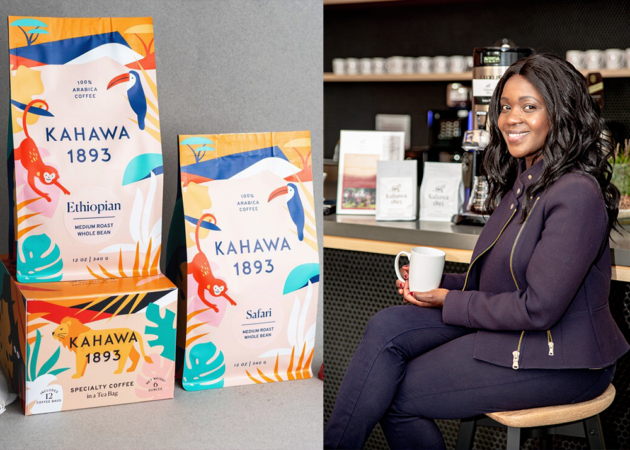Kahawa 1893 founder Margaret Nyamumbo isn’t just a coffee entrepreneur — she’s someone who knows her history, too.
“When it comes to the coffee industry, Kenyan coffee is the crown jewel,” she told AfroTech. “And, of course, there’s the history of coffee and how it was originally grown and developed in Africa — and migrated to South America — and how I wanted to pay homage to that history. Most important, though, I wanted people to experience the full beauty of Kenyan coffee — its uniqueness derived from the soil, which gives it its flavor, acidity, and sweetness.”
AfroTech recently shared how the history of coffee in America has been distorted to nullify the Black influence on the drink that has become a common staple for the average working American, and how Black farmers are starting to reclaim their place in the market while paying tribute to their history.
Such, as it turns out, is also the case in Kenya, of which Nyamumbo is a native. Born on a coffee farm — her grandfather tilled the land and was one of the first Kenyan natives to be allowed to grow coffee by British settlers — the Kahawa 1893 founder said that her unique line was a tribute, in a way, to him — and a way to carry on the family legacy.

“It was important to me to decolonize coffee before putting it on the shelves,” said the Harvard Business School graduate. “Everything from how I process it to how I market it is a tribute to Africa. Even its name — Kahawa — means “coffee” in Swahili.”
Being an Afrocentric brand that was also true to its mission paid off: it has now become the first Black-owned, and Black woman-owned, coffee brand to hit the Trader Joe’s shelves. And while Trader Joe’s didn’t provide a statement by press time, Kahawa 1893 described the move — correctly — as “a monumental move forward, not only for us, not only for the women farmers in Africa but all women and all of the Black community.”
View this post on Instagram
But Nyamumbo’s solidarity with the Black community — and Africa, in particular — isn’t just at the consumerist, surface level. Rather, Kahawa 1893 takes it a step further and makes sustainability efforts with their African woman coffee farmers.
On their official website, they have a tip page where 100% of the proceeds go directly to the female coffee producers they work with, and they match all tips to double the impact. And Nyamumbo also said that it was important, for her to “close the gender gap” in coffee production.
Now that she’s penetrated the Trader Joe’s market, what’s next for Kahawa 1893?
“Oh, more of the same, for sure,” she said confidently. “But, I must stress that philanthropy is also a core of our business model. We’re not just profit-driven. We are about sustainability and equity — something we’ve been denied for far too long — and that’s something that I hope will continue for years to come.”
Editorial note: Portions of this interview have been edited and condensed for clarity.


